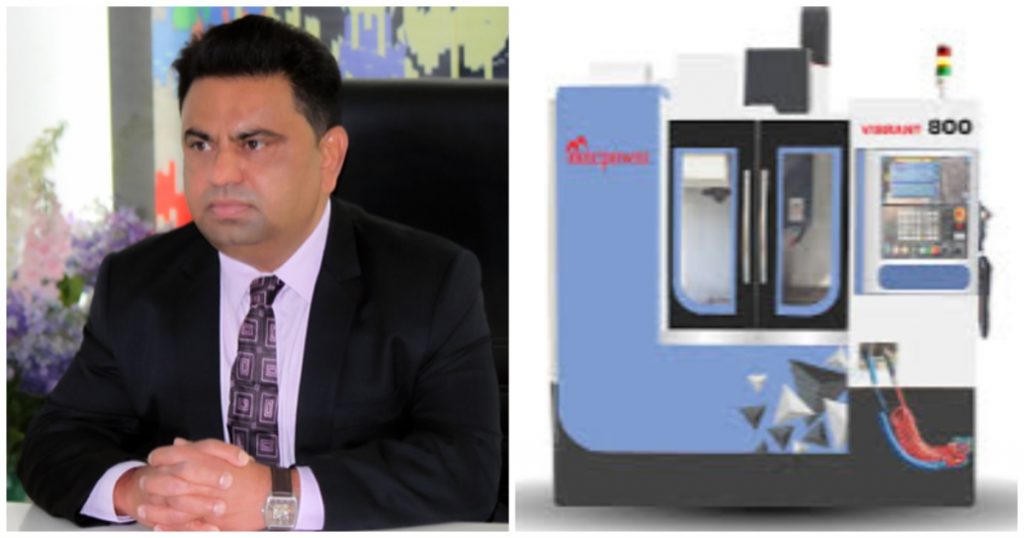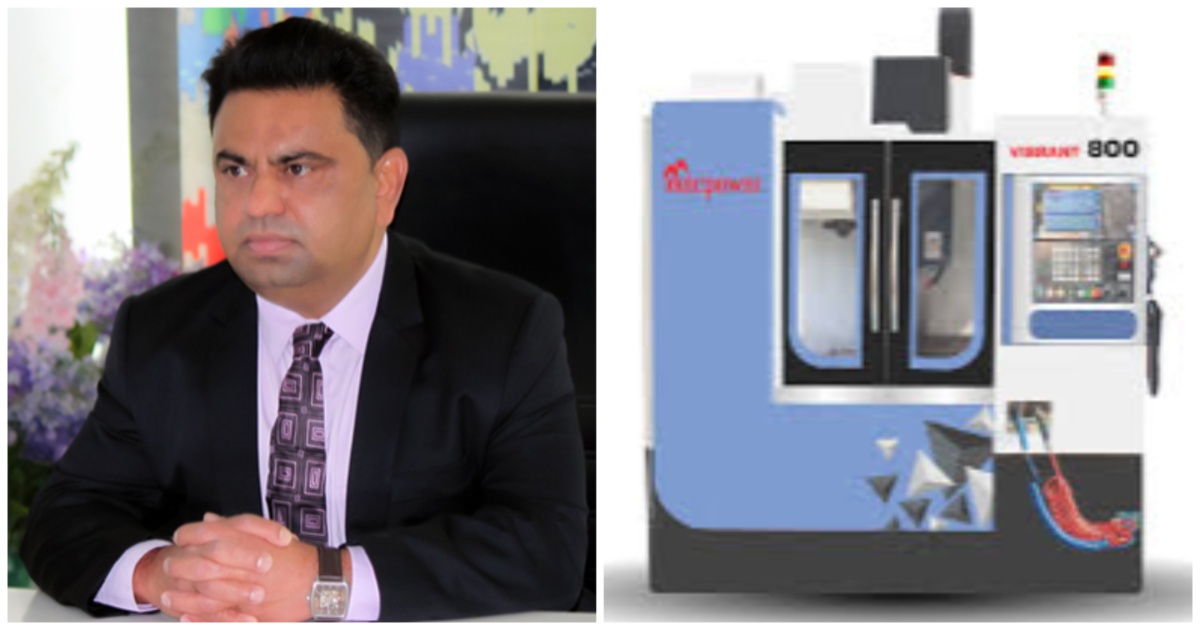India has been pushing hard on its Make In India initiative in recent years. Since the coronavirus pandemic and the geopolitical tussle with China, in sectors ranging from defence to aerospace, and from mobile phones to agriculture, the government has been pushing for self-sufficiency. All manner of manufacturing companies have been ramping up domestic production, but there’s a product that underpins much of the manufacturing industry — CNC machines.
A CNC machine (Computer Numerical Control) is a machine that automatically controls tools by the means of a computerized system. It is used to operate tools like drills, lathes, mills, grinders and even 3D printers. A CNC machine transforms a piece of material, which can be metal, plastic, wood or stone into a specified shape by following coded programmed instructions. The machine can do this without a manual operator directly controlling the machining operation, and is widely used to manufacture all kinds of parts and devices. Each machine can cost anywhere between Rs. 10 lakh to several crores.
Macpower CNC Overview
A company that’s now spent nearly two decades making CNC machines in India is Macpower CNC. The company has its origins in 1980, when it had been founded as Modern Machine Tools to trade in machine tools. It then followed the path that many trading firms employ — it set up its own manufacturing unit in 1985. In 2003, the company realized that it could set up its own unit to manufacture CNC machines, and began operations as Macpower CNC with a 4-acre plant in Rajkot in Gujarat.
By 2005, Macpower CNC had demonstrated the capability of in-house machining, and in 2007, it began making CNC machine models which had some advantages over the competition. In 2013, Macpower CNC demoed its own multi-tasking CNC machine in Germany. In 2016, it expanded its manufacturing facilities with new product categories. By 2020, Macpower CNC was able to make 1,000 CNC machines per year, which grew to 1,100 CNC machines by 2021, and 1,500 machines by 2023. By 2025, Macpower CNC aims to make 2,000 CNC machines per year.

Macpower’s CNC machines are used in a wide variety of sectors including aerospace, agriculture, automobiles, defence, railways and others. “Almost all kinds of manufacturing units require CNC machines,” says MD Rupesh Mehta. Macpower CNC counts companies including JSW Steel, Mahindra, Suzuki, Sun Pharma, John Deere, and PSUs including SAIL, NTPC and Indian Railways as clients.
Macpower runs 3-6 month long training period for fresh employees to teach them the basics of the CNC industry. “We’ve even approached AICTE To include CNC subjects in the syllabus. It’s hard to find manpower with the skills we require,” says Macpower CNC’s MD Rupesh Mehta. The company is also setting up a research division in Bengaluru which will house around 50 employees. “The research environemnt in Bengaluru is better than Rajkot” Mehta says.

There are only a handful of players in the CNC machining space in India, including Lakshmi Machine Tools founded in 1962, and the newly public Jyoti CNC. “There are only 8 odd (serious) players in our industry,” Rupesh Mehta says. “The entry barriers are high. You need to spend several years to be able to be able to produce your first functional CNC machine,” he adds. He says that while most other CNC players in India have tied up with foreign players or have some sort of partnerships, Macpower CNC has been running operations solo.
Macpower CNC Financials
Macpower CNC has steadily grown its topline. In 2021, its sales were Rs. 112 crore, which rose to Rs. 190 crore in 2022, and Rs. 201 crore in 2023. The company has been consistently profitable, having reported a profit of Rs. 6.03 crore in 2021, Rs. 12.84 crore in 2022, and Rs. 12.89 crore in 2023. Macpower CNC currently has no long-term debt, and prefers growing through the profits generated through its business.
Globally, there are CNC companies which have achieved massive scale, including America’s Haas, which sponsors the Haas F1 racing team, and Japan’s Mazak. Indian firms haven’t yet scaled to the levels of their global counterparts, but with increased focus on manufacturing in India, they might end up becoming quite crucial to Make In India ambitions in the coming years.
“Through my career I’ve seen massive changes in India’s manufacturing space,” says Rupesh Mehta. “Earlier there used to no electric power for companies, so our clients had to often run the CNC machines on generators. Also, it used to be much harder to get loans, so it was harder for them to buy expensive CNC machines. All that has changed now — nearly all industrial locations in India have regular power, and it’s much easier to get finance. And there’s an increased push on manufacturing from the government. We and other companies in the space have our orderbooks full,” he smiles.
